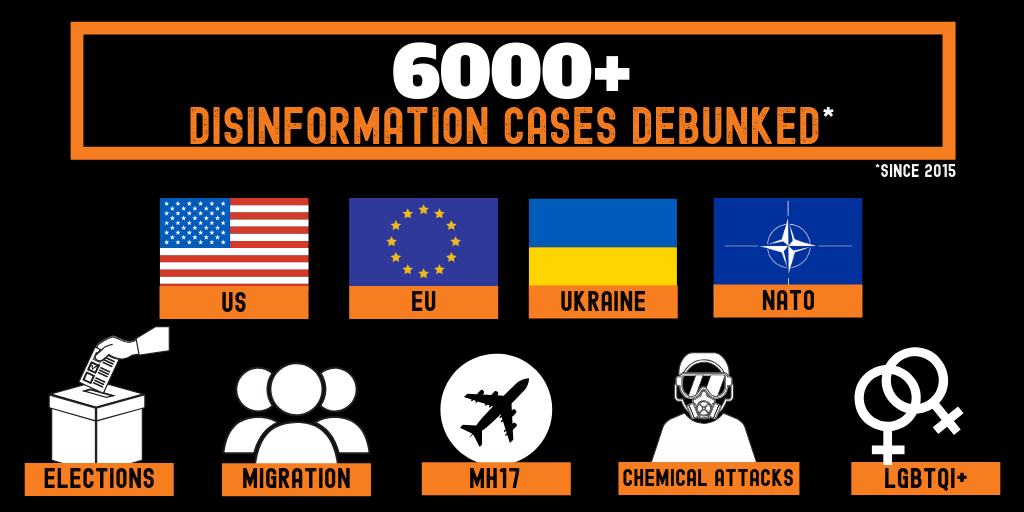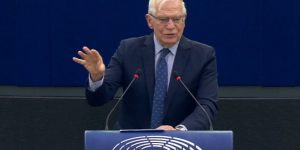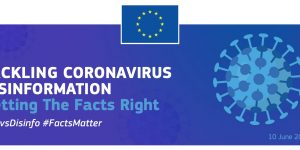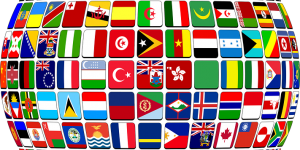By: Maida Muminović
„Notre Dame was set to fire by the aliens“, „Hitler is a failed American historical experiment“, „Landing to the moon was filmed in Hollywood studios“, „The Nazis are still in power in Ukraine“.
These four seemingly pointless and unrelated news only appear harmless. This information was made up, published and spread through the media and social networks as part of carefully planned campaigns aimed at creating suspicion about the facts and at causing confusion and distrust of official information sources.
Something that these news items have in common is the source location – Russia. They are an example of 6000 similar disinformation that was in the past four years revealed by a task force established by the European External Action Service, East StratCom.
„East StratCom was formed to act against the Russian disinformation campaigns. One of its main tasks is to build awareness with the citizens that the disinformation campaigns are real, about what their goal is, how they reach the public domain and how they are disseminated. East StratCom develops the communication products and campaigns focused on better explanation of EU policies in our partner countries in the East“, an EU expert working on this issue explained.
Among the more important tools of the East StratCom is „EUvsDisinfo“, a searchable database on disinformation debunked by this task force. Anyone can access the database which publishes, on a daily basis, the cases of disinformation in media throughout EU and posted via social networks, as disclosed by the East StratCom team.
“For every case available in the database, we highlight the source of the news, the fake data contained in it and we confront them it against the verified facts“, said our interlocutor.
„EUvsDisinfo“ also provides useful advice and tools on how to recognize fake news, and prevent becoming a participant in spreading such information. The term „information laundering“ explains the most common way in which disinformation appear and then move from their source to the mainstream media.
Fake information or disinformation narrative usually appear on a less relevant website initially. Then the same message appears on blogs and social networks, and as a topic in Internet forums. Once it receives sufficient attention, such information ends up in mainstream media, and this is when those who launched the information know that they have succeeded.
The need for the European Union to devote itself strategically to fighting against Russian disinformation was recognized in 2014. At that time, it was noticed for the first time that the Russia’s military actions in Ukraine were followed by the extensive spreading of fake information, semi-information, conspiracy theories, which – via social media – crossed the conflict’s borders and influenced global public opinion on the events in Ukraine. Kremlin still continues to spread disinformation on the crash of the Malaysia airlines airplane over Ukraine in July 2014, despite evidence of Russia’s responsibility for this tragedy.
Since 2015 to date, the EU has taken a number of steps to counter the influence of Russian disinformation campaigns. The latest in the series was the December 2018 adoption of the Action Plan Against Disinformation.
One of the outcomes of the EU’s commitment to fight disinformation is the cooperation established with online platforms such as Facebook, Google and Twitter. Namely, from the beginning of 2019 to May, three Internet industry giants voluntarily provided the European Union with detailed reports containing, among others, the data on the number of detected and removed fake user profiles, or profiles for which was established to exist only for the purpose of disinformation.
Additionally, the EU budget for controlling disinformation has been recently doubled, which will allow the EU to counteract these phenomena with even stronger resources.
„There is certainly a progress both in terms of a level of awareness of broader public, and in the context of media industry understanding a responsibility for spreading fake news“, our interlocutor concluded.
#NeVjerujNaPrvu is the European Union project in Bosnia and Herzegovina.
The content of this article is a sole responsibility of the author and does not necessarily reflect the views of the European Union.




